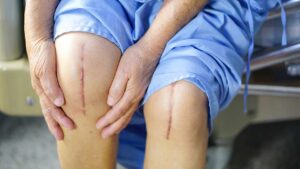Vitamin D plays a crucial role in maintaining bone health and overall well-being. Often referred to as the “sunshine vitamin,” it is essential for calcium absorption, bone growth, and bone repair. Understanding how to effectively obtain vitamin D from sunlight and supplements can help you optimize your bone health and prevent deficiencies. This blog explores the importance of vitamin D, sources of this vital nutrient, and strategies to ensure you get enough to support your skeletal system.
Why Vitamin D is Essential for Bone Health
- Calcium Absorption: Vitamin D enhances the body’s ability to absorb calcium from the diet. Calcium is a key mineral required for building and maintaining strong bones. Without adequate vitamin D, the body cannot effectively utilize calcium, leading to weaker bones and an increased risk of fractures.
- Bone Growth and Remodeling: Vitamin D is vital for bone growth and remodeling throughout life. It supports the activity of osteoblasts (bone-forming cells) and osteoclasts (bone-resorbing cells), ensuring a balanced process of bone formation and resorption.
- Prevention of Bone Disorders: Sufficient levels of vitamin D help prevent bone disorders such as osteoporosis and rickets. Osteoporosis is characterized by brittle bones due to reduced bone density, while rickets, primarily seen in children, leads to weakened and deformed bones.
How to Get Enough Vitamin D
- Sunlight Exposure: The body produces vitamin D when the skin is exposed to ultraviolet B (UVB) rays from the sun. Aim for about 10 to 30 minutes of sunlight exposure several times a week, depending on your skin type, location, and time of year. Fair-skinned individuals may need less exposure compared to those with darker skin.
- Dietary Sources: Incorporate vitamin D-rich foods into your diet. Some excellent sources include fatty fish (such as salmon, mackerel, and sardines), fortified dairy products, orange juice, and egg yolks. Mushrooms exposed to UV light also provide vitamin D.
- Supplements: Vitamin D supplements can help if you’re not getting enough from sunlight and food. Vitamin D3 (cholecalciferol) is generally preferred over vitamin D2 (ergocalciferol) as it is more effective at raising and maintaining vitamin D levels in the blood. Consult with a healthcare provider to determine the appropriate dosage based on your individual needs.
- Monitoring Levels: Regular check-ups with your healthcare provider can help monitor your vitamin D levels. Blood tests can assess whether you have sufficient levels or if supplementation is needed.
Balancing Sun Exposure and Safety
- Sun Protection: While sunlight is a vital source of vitamin D, overexposure can lead to skin damage and increased risk of skin cancer. Use sunscreen, wear protective clothing, and seek shade during peak sun hours to balance sun exposure and skin safety.
- Seasonal Variations: In regions with limited sunlight during winter months, it may be challenging to obtain adequate vitamin D through sunlight alone. During these times, relying more on dietary sources and supplements may be necessary.
- Special Considerations: Individuals with darker skin, those living in northern latitudes, or those with limited sun exposure may have higher vitamin D requirements. Special attention should be given to these groups to ensure they meet their vitamin D needs.
Conclusion
Vitamin D is essential for maintaining strong and healthy bones by enhancing calcium absorption and supporting bone growth and repair. By combining adequate sunlight exposure, a diet rich in vitamin D, and appropriate supplementation, you can ensure optimal bone health and prevent deficiencies. Regular monitoring and a balanced approach to sun exposure will help you achieve and maintain sufficient vitamin D levels for overall well-being. Consult with Orthopedic Specialist Dr.Rishabh Jaiswal to tailor your vitamin D intake to your specific needs and lifestyle.








